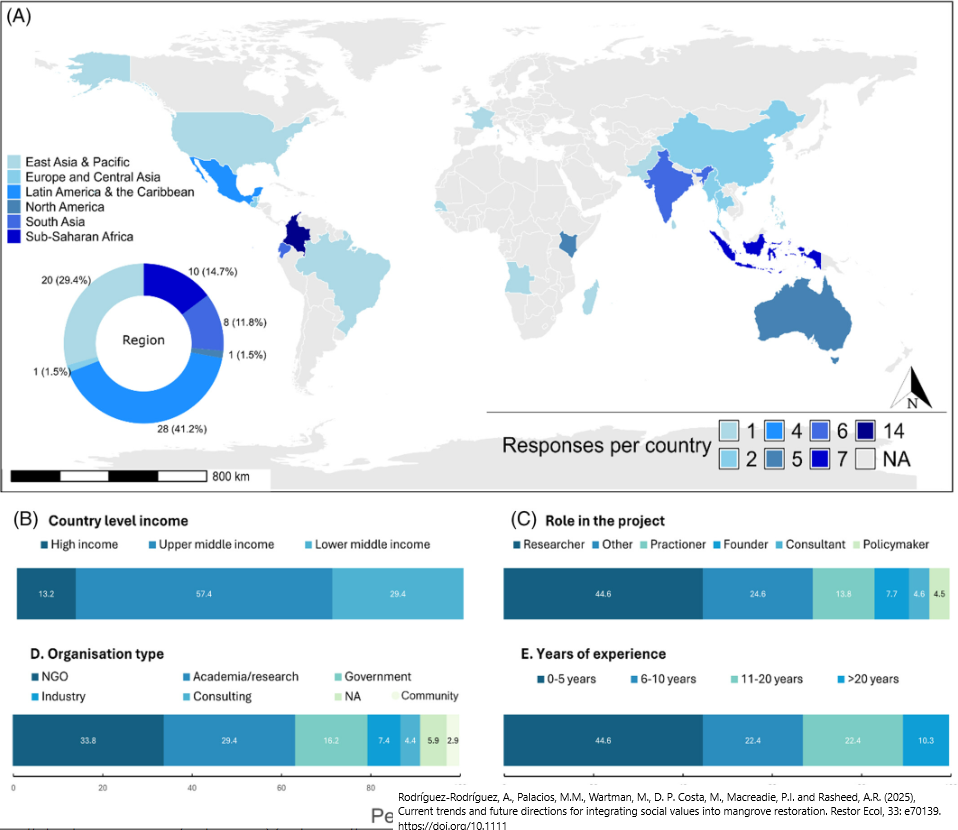
Despite the recent rise in mangrove restoration projects, the extent to which many projects include social dimensions remains contested, with limited research informing insights from on-ground projects. To address this gap, we conducted an online survey of different stakeholders involved in mangrove restoration projects worldwide to understand the types of social values (e.g. shared preferences and local priorities) considered in mangrove projects and the processes used by practitioners to include various social values in such projects (e.g. participatory planning). We received responses from 68 mangrove restoration projects across 24 different countries. Countries with the most responses included Colombia, Indonesia, Ecuador, India, and Australia. When deciding on mangrove restoration, most projects (n = 62) considered social values to some extent. Only a few projects (n = 6) reported no inclusion of social values. Mangrove restoration projects were aligned with human needs and instrumental values. While projects usually considered local community values, they often overlooked the preferences of industry, lobby groups, and stakeholders outside the project area. Although 90% of surveyed projects recognize social values, their unclear impact on decisions suggests a need for further research. This study explores the opportunities of incorporating diverse values (e.g. relational values of different stakeholders) in mangrove restoration and provides future directions to overcome barriers limiting the success of these projects globally.














